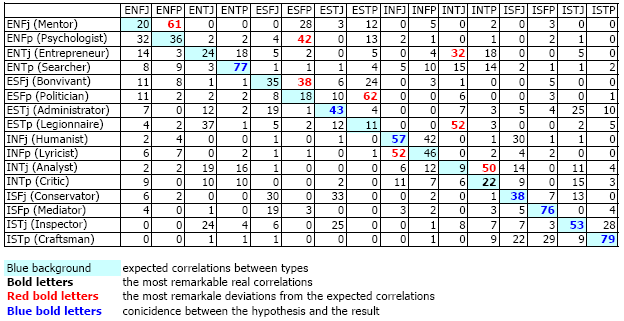It is worth noting that if you take a cognitive function test, which is not based on behaviors, your top two functions will most likely coincide with those of your mbti type's. Try it. It is true that all we can really observe is behavior. However, behavior can be used to determine an internal process. For instance, if I asked you to solve some difficult long division mentally, I could observe your eyes roll up to the sky as you remain motionless and infer that you are not using Se to look at the birds and the clouds but that you are retreating into your own head to use an introverted function, and since I understand that you aren't using interpersonal analysis to solve said division, I have used your behavior along with other information to conclude that you are using Ti. Now, you may be trying to trick me, looking at the clouds while pretending to solve the problem, but when you fail to give me the correct answer, I can assume that either you suck at math or that you were NOT using Ti.
So you aren't entirely wrong, but I think your position is a little too strong.
Cognitive function tests are effectively the same thing as regular MBTI tests because they still put the internalized cognitive functions in externalized thought/behavioral terms; the very composition of the test in the form of words that symbolize subjective ideas makes this inevitable. In other words, the two tests ask the same things paraphrased--hence the correlation in results.
We can't breach the barrier of another person's mind to even begin understanding the accuracy of his functional analysis, unless we are deeply involved with that person and have been privy to an exceptional amount of extremely private information, and even then it's still a far cry from pinpointing exact internal cognitive functions with any degree of precision.
Especially on the internet! Sometimes I wonder if people have even the slightest conception of the amount of personality data you're missing when your communication is limited solely to text.
Real brain functions can come in so many different varieties, combining in different ways to cause so many different behaviors for so many different reasons that it's almost laughably naive to pretend that complex human cognitive patterns can be explained completely in two lines by a pop Jungian pseudo-psychology. It's intuitively obvious that it has to be more complex than that, complex enough to make the "I can explain everything that motivates you to do everything" system too idealized for any real use beyond entertainment.
Functions are useful labels to describe, arbitrarily categorize and help understand our
own inner selves, but when applied to others with whom we cannot possibly share the same subjective experience, they get pretty fuzzy, pretty quick.
Maybe I should specify that I'm not that big a fan of Jung. He's interesting, but I think by far his biggest contribution was the names in the categorization system and the method by which we categorize the external manifestations of these unknown internal motivations of others.
As for Jung's functional theories, well...there's not much actual evidence to back them, once you try to cross the barrier into interpreting the subjective experience of other people.



